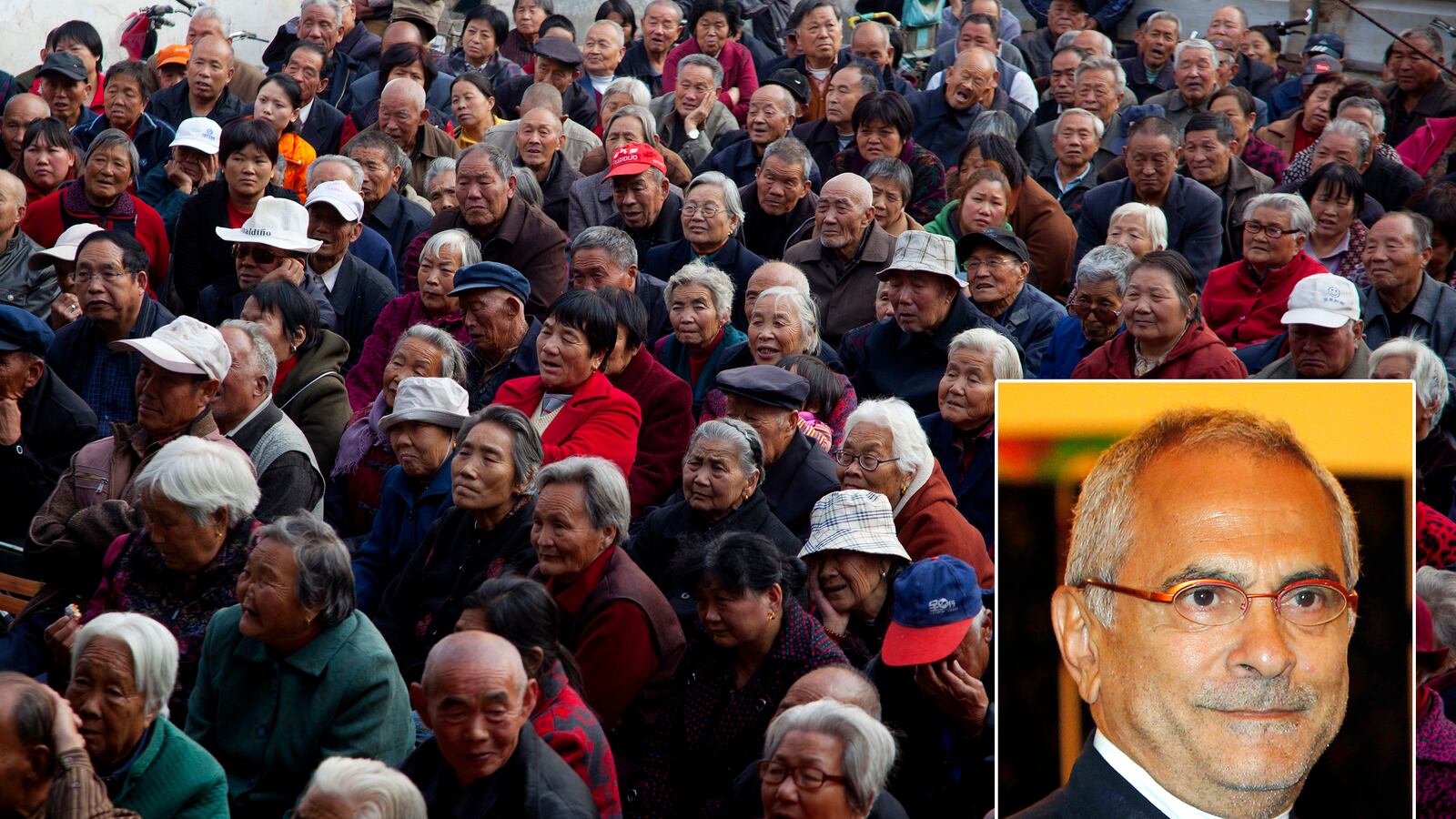Jose Ramos-Horta, Nobel laureate and former president of East Timor, was scheduled to address the Asia Society about peace-building in Asia when Hurricane Sandy crashed the party. He spoke with The Daily Beast about why this isn’t the Asian Century, why the United States remains unchallenged on the world stage, and how aging populations will destabilize China and Japan.

There’s been a lot written in the last few years about how we’re now in the “Asian Century.” How do you see the state of Asia today?
I hold a view contrary to many scholars, who are in my view overly optimistic about the so-called Rising Asia. I believe that the Asia region—although very promising, and [which] has grown in terms of economics, development, with hundreds of millions of people lifted out of poverty in the last four decades—remains the most dangerous and unstable region of the world by the mere fact that it is the most nuclearized region in terms of the number of countries possessing weapons: India, Pakistan, North Korea, China, not to mention those that could quickly acquire nuclear weapons if they were forced to. Asia also has some of the most intractable border disputes over which many countries in the area have gone to war in the past. We also have some of the most intractable ethnic and religious tensions that time and again flare up, with thousands killed in a matter of days when they flare up. Not to mention the challenges of an overcrowded region that has put enormous pressure on resources. We have one of the most environmentally degraded regions in the world by sheer pressure of human activities.
So in view of all of this, I’m surprised, perplexed, at how some are talking about how the 21st century is the Asian Century.
What are some of the most pressing population-related issues facing Asia?Asia’s own success—in Japan, China, Korea—has caused also a phenomenon that was recently only seen in Europe, and that’s the aging population. I often have told my Chinese friends: “You cannot be a superpower of old people. You cannot fight wars on wheelchairs.” And can one imagine in the next 20 or 30 years, 300 million, 500 million Chinese over the age 80? How they are going to support them?
And the U.S. remains very much unchallenged partly because of its young population. Why does it continue to have a relatively young population? Because it has a much more open-door policy toward migration. Millions of people from all over the world migrate to United States over the years, settle here, breed here, and rejuvenate the country.
The more so-called ethnically homogenous societies, like Japan, South Korea, are far more closed to anyone who does not belong to their racial ethnic stock. So they have not been able to compensate for the loss of population through aging with new people.
And the U.S., because of what it is—a country born and built by migrants, very open, very creative—I find it very difficult for anyone in the world to match it. But does that mean that Asia is condemned to be aging and powerless? Of course not, but when we talk about Asia, we cannot talk as if we talk about a unified Asia. Rivalries are there for all to see.
Is there any leadership in Asia today that can move toward unity?No, there is no one in Asia that can do that. In their own respective regions, there are some with a lot of prestige now, like the president of Indonesia, Susilo Bambang Yudhoyono. He has presided over incredible transformation of Indonesia from the dictatorship of the past into vibrant democracy and vibrant economy, and he’s widely respected in Southeast Asia and in Asia for that. But to build bridges between, let’s say, China and Japan and Korea, to build bridges between China and India, he would find it incredibly difficult, next to impossible.
If the Chinese and Japanese populations continue aging as quickly as you have noted, eventually they have to reach some kind of tipping point. What would that look like?I will be speaking in Japan end of November at three different universities, and I will be telling the Japanese, a country that I know well and have a lot of admiration for—I enjoy going to Japan—I will tell them that either you rejuvenate, procreate like God told us millions of years ago, or you die. We will see too many Japanese in wheelchairs and with robots performing duties for human beings, for the elderly.
That will happen in an even grander scale with China. The aging population is a serious security challenge, and I use the word “security challenge” in the sense that it can be incredibly destabilizing to this country because of the enormous resources they need to take care of the elderly. And yet they are not prepared.
Japan has had years of experience dealing with an aging population, and it’s not by coincidence that Japan has such advanced robot technology. When one visits Toyota factory, one is amazed how different it is today from what it was 50 years ago, and that’s partly because it doesn’t have manpower. If it did, it could use more human beings to create employment.
So Japan has to really think seriously, a bit like Singapore. Singapore is finding creative ways, sometimes even unusual ways, to entice families to have children. So that I see as a social and economic problem but also as a security problem.





